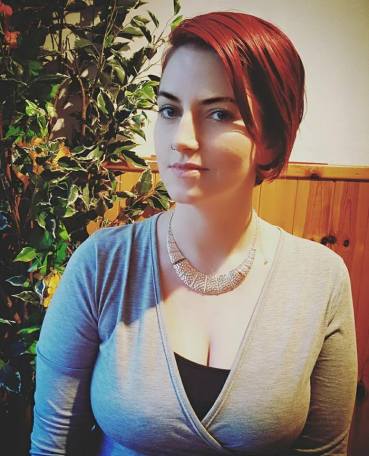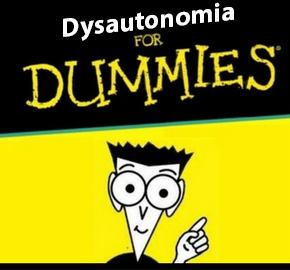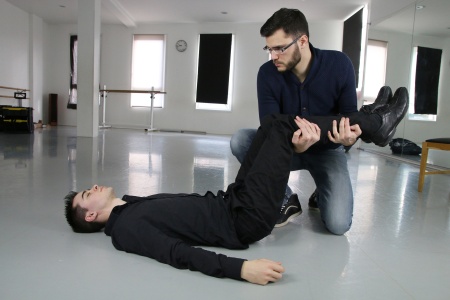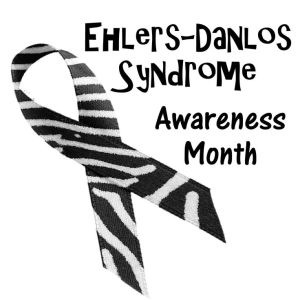
Yes, it’s that time of year once again folks, May is EDS Awareness Month and this year, I update my diagnosis story as it just grows in volume and substance every year since all this started in 2011!! So here I go again, it’s 2017 and my story is in need of a clean up and update, so let’s jump right into it!
So firstly, What is EDS?
Put simply, EDS (Ehlers Danlos Syndrome or ‘The Ehlers Danlos Syndromes’, as it is now known since March 2017) is a group of connective tissue disorders. Here is a better explanation according to the EDS Wiki:
” Ehlers–Danlos syndrome (EDS) is a group of genetic connective tissue disorders. Symptoms may include loose joints, stretchy skin, and abnormal scar formation.[1] These are typically noticed at birth or in early childhood.[2] Complications may include aortic dissection, joint dislocations, scoliosis, chronic pain, or early osteoarthritis.[3][1]
EDS is due to a mutation in one of more than a dozen different genes. The specific gene affected determines the type of EDS. Some cases result from a new mutation occurring during early development while others are inherited in an autosomal dominant or recessive manner. This results in defects in the structure or processing of collagen.[1] The diagnosis may be confirmed with genetic testing or a skin biopsy. People may be misdiagnosed with hypochondriasis, depression, or chronic fatigue syndrome.[3]
There is no known cure.[4] Treatment is supportive in nature.[3]Physical therapy and bracing may help strengthen muscles and support joints.[3] While some types have a normal life expectancy, those that affect blood vessels generally have a shorter life expectancy.[4]
EDS affects about 1 in 5,000 people globally.[1] The prognosis depends on the specific type.[3] Excess mobility was first described byHippocrates in 400 BC.[5] The syndrome is named after two physicians, Edvard Ehlers from Denmark and Henri-Alexandre Danlos fromFrance, who described it at the turn of the 20th century.[6]” –
Ehlers Danlos Syndrome Wiki
If you would like to know more about EDS types, symptoms and a host of further information then I highly recommend The Ehlers Danlos Society Website for more info.
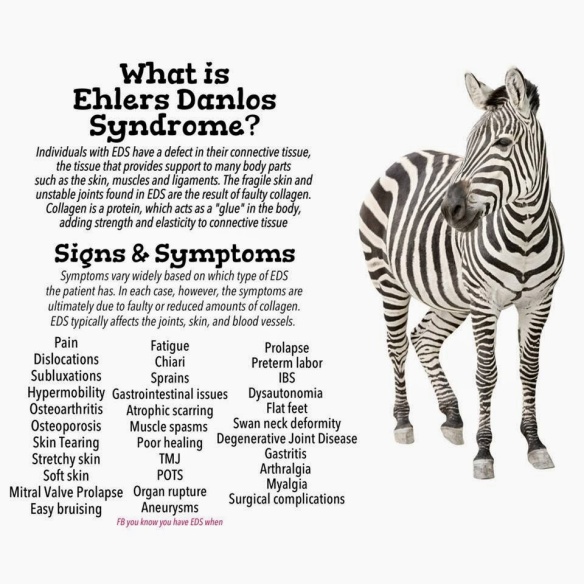
My Personal Diagnosis Story.
Though I have had many medical issues throughout my life, my Chronic Illness journey only began properly in 2011.
One Tuesday morning in March, I woke to not feeling very well and as I was exiting the bathroom I called out to my husband who just happened to come and catch me as I passed out in his arms.
I continued to come to and then pass out again every time I straightened my legs. My Heart rate was racing and my Blood Pressure was dropping really low. My husband called the doctor for advice who told him to immediately call an ambulance or take me to A&E. He decided to drive rather than waste more time waiting for an ambulance which would take at least 30 minutes to get to where we lived.
On the way to A&E my husband had to keep shouting at me in the car to try and keep me alert as I kept needing to pass out. We finally arrived at the hospital, I was rushed inside and long story short, many tests and doctors later I was kept in for nearly a month where many further tests were performed, one of which was a Tilt Table Test with which I was diagnosed with Postural Orthostatic Tachycardia Syndrome (Pots) and Vasovagal Syncope (VVS) or Neurocardiogenic Syncope (NCS) – they are both the same thing, basically neurological fainting!
So where does EDS come into it?
In the 2 years following the diagnosis of Pots, I was hospitalized many times because of the fainting, low blood pressure and other complications. In the process of trying to figure out what caused the Pots, Hypermobility was mentioned a few times by a couple of doctors and physios, however, whenever I mentioned it to my Pots doctor (he is a geriatrician but he is the specialist who looks after me for my Pots), he didn’t seem to think it was anything to be worried about, even though I did have chronic pain and I did feel it was affecting me at the time.
As time went on, the pain became worse and I felt a formal diagnosis of Hypermobility would benefit me, though there are no EDS or Hypermobility specialists anywhere in Ireland, I still felt a diagnosis would help me.
I had heard about a Rheumatologist in Cork who knew about EDS and Hypermobility so I decided to pay him a visit just to see what he thought. Down I went to see him and within a few minutes of him seeing me he had me diagnosed with a ‘classic case of Hypermobility EDS’, with possible Classical EDS overlaps. I was surprised and kinda happy that I had finally confirmed my inkling that I had it.
However, this diagnosis from the Cork Rheumatologist wouldn’t be worth the paper it was written on… with my pots doctor anyway. He never accepted the diagnosis and just ignored it outright so I just had to live with the fact that my Pots was probably caused by the EDS but there was nothing I could do about it.
To help, my Pots doctor did organize for me to see a Rheumatologist in Croom hospital who confirmed my possible hypermobility and organized for me to do Hydrotherapy and physio at their facilities in Croom Hospital. Even that physiotherapist confirmed I had possible hypermobility but she never believed I had EDS. I found the HSE as a whole were fine to say hypermobility but would never confirm EDS (for fear they would have to treat me for it if they confirmed the diagnosis! I have always been paranoid that was the reason anyway… maybe not!)
You Said You Always Had Some Medical Issues?
Yup! I was even breached for a while before birth but thankfully righted myself before being popped out! When I was born then, I was born with a Fissure and a broken Tail Bone and throughout my life I always had gut issues, travel sickness and dysmotility and I was never without a cast, sling, crutch or some other bandage or plaster thanks to stupid injuries and broken bones which, even though broken bones are not symptoms of EDS I put a lot of my past injuries and ailments down to my EDS as you’re born with it, it’s with you from the start and I seemed to have a lot of various symptoms.
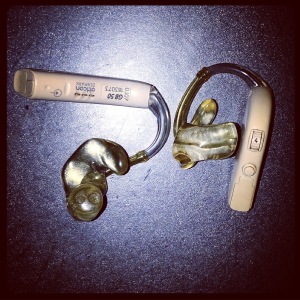
I am currently severely deaf and wear Bi Lateral Hearing Aids, I have and have had since the age of 7, Bi Lateral Sensory Neural hearing loss and Otitis Media with under developed eustachian tubes and auditory canals. My younger life was plagued by ear infections and severe ear pain.
When I hit puberty and teenage years the fainting, feeling really weak, Nausea, Dysmotility and chronic pain got bad with a vengeance and again all the way through school there are photos of me in slings and on crutches, it was crazy! I did do Karate though from the age of 13 and I was constantly breaking bones from it! Baaaaad idea with EDS but sure I never knew and the A&E at the time only ever treated the individual injuries and never looked at everything as a whole!
My teeth and gums gave me problems too. From the age of 13 to 16, I was with an Orthodontist and had braces for the full 3 years. As well as always having gum disease for as long as I can remember, They could never successfully freeze my gums, they had to do lots of injections and finally had to bring in a heavy chrome looking contraption thing to freeze the gums, either way lots of freezing needed. I also had receding gum and bone and every time the braces were removed my teeth would start quickly moving back to where they had been! I now know all these teeth things are problems of EDS.
Things Improved and I Returned To Work
After a little while things slowly began to improve, life from 2011 had been turbulent but in 2013 I decided the time was right for me to return to work. I had been working as self employed while I was running my Media Production Company from 2010 after I had finished my Masters of Science in College and it went very well while I had the energy for it and obviously while I was sick I became unable to deal with 12 hour days traveling all over the country for day long photo and video shoots so I decided something slower paced would suit me better and I found the perfect job working from home for Apple Computers. I absolutely loved the job and because it was from home it was sedate enough for me to deal with some symptoms and still be able to work but just as things had started to go well, about 4 months in I tripped over my Mums dog we were minding and wrecked my hip. Symptoms seemed to crack up from here!
Things Then Got Worse and I Went Into A Wheelchair and Had To Stop Work
Things got worse and worse from here, my hip pain was daily and excruciating, I had to go into hospital for investigations where I was advised to stop work because of my illness and to start using a wheelchair to help my mobility. Of Course, I didn’t want this at all and resisted it at all costs but had to give in, in the end as I simply just needed it and now I am glad I have decided to use a chair as it has given me much freedom in this restricted state. Work however has stopped and has not restarted since stopping in 2013. It doesn’t look likely that I will ever go back to work as this is a progressive disease.
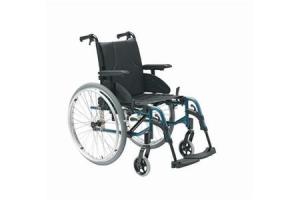
The symptoms continued to get worse and worse, I started having seizures, ended up in the ICU at one stage for a couple of days and I decided that going to a specialist in the UK was the right thing to do. I was hospitalized so many times where the doctors didn’t know what to do with me and didn’t accept my EDS diagnosis from the Rheumatologist in Cork and I was left with very little help or treatment.
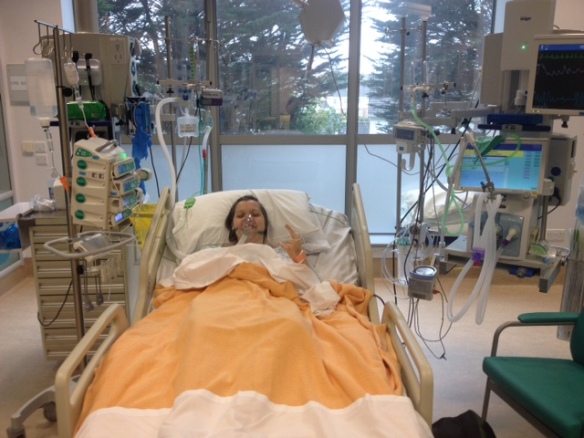
Even my hydrotherapy and physio had stopped early in 2014 as I had fainted in the pool because of my Pots in the hot water and the physiotherapist didn’t want to see me back at the pool or gym until such time as I stop fainting… which is never! So unfortunately I havent been able to get back to that either since it stopped!
Prof. Rodney Grahame, EDS Extraordinaire in London, was the next port of call.
The Hospital of St. Johns and St. Elizabeth in London

I started a Go Fund Me and started fundraising to go to London. So many people generously helped out, Thank you to all, everyone was amazing, even a quiz night was organized and everything, I was blown away! I finally had enough to go and so I did, You can read all about the trip HERE.
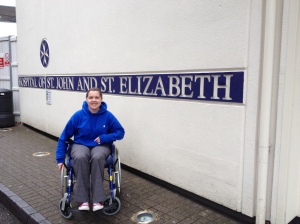
Long story short, we got to London and I got a confirmed clinical diagnosis of EDS Hypermobility Type with secondary GI Issues and possible Classical EDS overlaps, from the Professor himself. He did up a great long letter and treatment plan to send to my doctors that couldn’t be ignored and I have found has helped me hugely since getting it. He referred me to Harold’s Cross which I did in Feb 2016 and you can read all about that time HERE and I find all doctors and nurses take the diagnosis far more seriously than the one from Cork. I have had no more trouble from anyone on believing or disbelieving the diagnosis. He wanted me to return to see Prof. Aziz a Neurogastroenterologist for further tests and treatment and I had hoped to return sooner than I am able to. I will be returning in 10days time (2.5years later) to see him and I am excited!
Why Didn’t You Return To London Before Now?
Simply put, I was too ill to fly. The past 2.5 years have been by far the worst in terms of my symptoms. My Nausea is daily and intractable, my dysmotility causing so much pain and trouble that I have been hospitalized loads of times because of it and what I have been diagnosed with called Sphincter of Oddi dysfunction has been causing severe pain and again I have been hospitalized because of this and other chronic pain. I have also been diagnosed with Neurogenic Bladder Dysfunction and have had complications because of that also.

My Neck has been giving me huge trouble. I am receiving Occipital and SI Joint Nerve Blocks for severe pain. My pain specialist thinks I have instability in my neck but that cant really be checked without an upright MRI, which I may also need to get, but again there is none in Ireland so this will have to be done in London if it is needed. At the moment he is treating me as though I have instability in my neck with the Nerve blocks and opiate pain meds until such time as I can get it checked properly. He has me in for a lie down regular MRI for which I am waiting to be called but he doubts it will show anything.
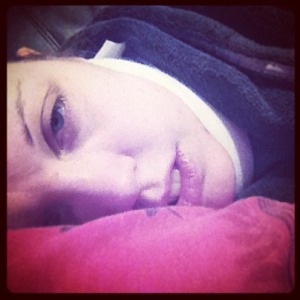
My Gastro issues are probably my worst problem. They are what I am hospitalized for the most and they never seem to go away. This is why I decided to visit another specialist in Cork, this time a Gastroenterologist who has studied with Prof. Aziz (the Dr. I am seeing in London for my EDS Gut related issues) I went to see him in Cork and he immediately identified all my problems and symptoms, took note of all the medications I am on and booked me in for a number of tests that may be asked for in London anyway.
In Feb this year I had a Barium Swallow test that showed up all clear which is great. Next Monday I have a Gastric Emptying test to do which is happening just before I go to London to see Prof Aziz. I will be flying out the morning of Sat May 13th. The reason I decided to go to this doctor in Cork was that he understood EDS, I heard great things back about him and the fact that he studied under Prof Aziz all meant that he could possibly help me out and so far I feel he has. He was the one who wrote the referral letter to Prof. Aziz for me and he said he would work with whatever Prof. Aziz says in his treatment plan.
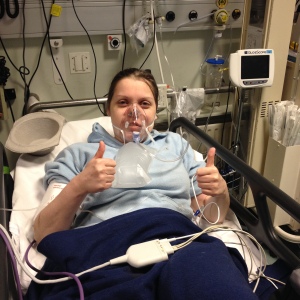
So, When Are You Off?
All going well with my health (it has been very up and down lately, mostly down) we hope to fly out Sat Morning the 13th May at about 07:30am and landing in London around 09:05am. From here we may grab a bite to eat before heading to the appointment with Prof. Aziz at 12:30pm at The Princess Grace Hospital, where afterward we return to the hotel to rest.

That’s the plan anyway, lets hope that’s how it works out! I tried a dry run of trying to stay up for 11 hours (sounds easy for some but for me I find it difficult to stay up past 4 hours before needing rest) as 11 hours is the time it takes from being up from about 05:00am that morning until about 4pm which is roughly the time we will make it to the hotel at, thats 11 hours up. I tried that the other day and actually failed at 9 hours and needed to crash so bad! so I am worried I may not be able for this trip but I will persevere and hope for the best. My husband will be with me so at least I wont be alone when I go to London and of course I will update you all when I return. I really hope the good professor can help! 🙂
Lette (Fainting Goat!) xxx
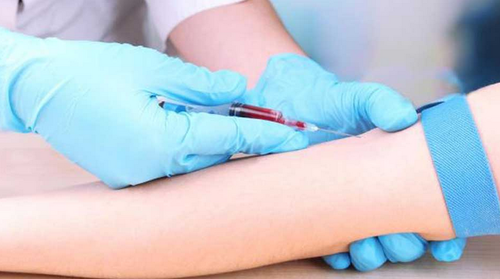


 6:35am – Check in
6:35am – Check in 7:00am – Board Plane with the help of Disability Services
7:00am – Board Plane with the help of Disability Services 7:15am – Flight Take Off
7:15am – Flight Take Off 8:15am – Flight Land at Heathrow
8:15am – Flight Land at Heathrow 8:45am – Get through security and make our way to the Heathrow Express Train
8:45am – Get through security and make our way to the Heathrow Express Train 9:15am – Heathrow Express arrives at Paddington
9:15am – Heathrow Express arrives at Paddington 11:30am – Taxi to Consultants Appointment at The Physicians Clinic at Devonshire Street
11:30am – Taxi to Consultants Appointment at The Physicians Clinic at Devonshire Street 17:30pm: Too tired to deal with crowds so decide to bring sushi back to the hotel to enjoy in peace. Then just relax watching TV for the rest of the evening as we were both wrecked and I was beginning to feel really poorly after the busy day. I did ok though but we didn’t get much sleep as there was a Hen party in the room next door to us so it was really noisy at times but either way we got through the night and were up bright and early the next morning, Though we were both impossibly tired and I was barely able to move!
17:30pm: Too tired to deal with crowds so decide to bring sushi back to the hotel to enjoy in peace. Then just relax watching TV for the rest of the evening as we were both wrecked and I was beginning to feel really poorly after the busy day. I did ok though but we didn’t get much sleep as there was a Hen party in the room next door to us so it was really noisy at times but either way we got through the night and were up bright and early the next morning, Though we were both impossibly tired and I was barely able to move!












